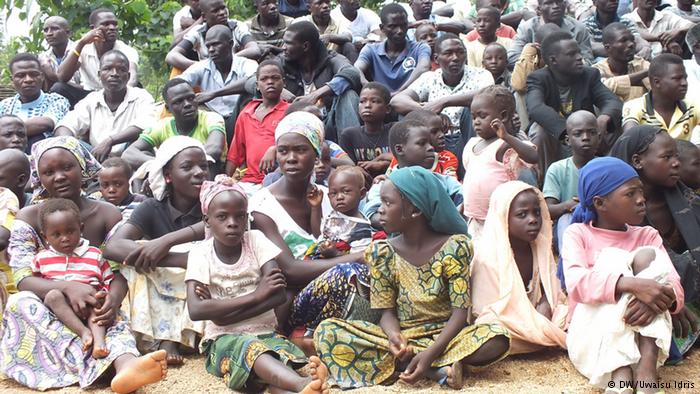The Food and Agriculture Organization (FAO) of the United Nations (UN) has launched its dry season emergency livelihoods programme in the three States most affected by insurgency in Northeast Nigeria, with the goal to rapidly boost food production and strengthen communities’ resilience in the face of the crisis.
Some 117,000 farming families (representing 760,000 people) are targeted to benefit from the support. Farmers received seeds, rice and fertilizers, along with irrigation equipment, training and micro–gardening support to increase cultivation, reduce the impact of the food crisis and improve the nutrition of families facing severe hunger.
The campaign is being implemented in partnership with the state governments and was launched through a ceremony in Maiduguri, Borno state led by the Governor Kashim Shettima.
In Yola, Adamawa state the launch was conducted by the Governor, Mohammad Umaru Jibrilla Bindow while the Yobe state Commissioner of Agriculture, Mustapha Gajerima represented the Governor, Alhaji Dr. Ibrahim Gaidam, to conduct the ceremony.
FAO’s Representative to Nigeria, Mr. Suffyan Koroma, co-led the launching ceremonies and emphasized that “FAO’s support to food insecure populations in northeastern Nigeria focuses on helping affected communities to quickly meet their own food needs through their own production and ultimately contribute to building their resilience to future crisis”.
Confirming the importance of the Government-FAO-led supported interventions to address food insecurity in the three north-eastern states, Governor Shettima emphasized that proactive measures must be taken to address the food situation to alleviate the devastating impact of violence on food security and food production.
“Practical measures are necessary to support farmers before the next cropping season”, he said.
Read Also:
In 2017, FAO is assisting more than 1.5 million people, focusing on internally displaced populations (IDPs), returnees and host communities, in the north eastern states of Adamawa, Borno and Yobe under emergency.
FAO’s efforts support the Government’s wider efforts to restore livelihoods and address critical levels of food insecurity and malnutrition in areas affected by the Boko Haram–related violence.
While the latest Cadre harmonize food security analysis indicates a positive trend of improvement in food insecurity condition as proportion of population has moved from higher CH phases (4 to 5) of food insecurity to (1 to 3), projections in the next lean season (July – August 2018) are further a rise in the number of people facing severe hunger.
Addressing this concern FAO leadership reinstated the impact FAO response strategy will continue to have to strengthen resilience among food insecure communities.
“The FAO programmes aim at developing relevant responses to the food and livelihoods crisis since 2014, by supporting the crisis affected populations with improved agriculture inputs and livelihood assets such as early maturing crop varieties good quality fertilizer, irrigation and micro gardening equipment and food processing assets”, Koroma reinstated.
Commending the government led FAO supported efforts, one of the first recipients of dry season input distribution in Borno 46 year old Ya Maida stated that farm inputs will support growing food crops to meet food consumption needs but also their basic domestic needs such as clothing through selling of matured crops.
These efforts to build resilience of communities and build a hunger free world have been made possible with generous financial support of donors.
The funding comes from the Government of Belgium, CERF (Central Emergency and Relief Fund of the UN), ECHO, France, Germany, Ireland, Norway, OFDA, SIDA and Switzerland.
David Karls Tsokar
National Communication Officer




